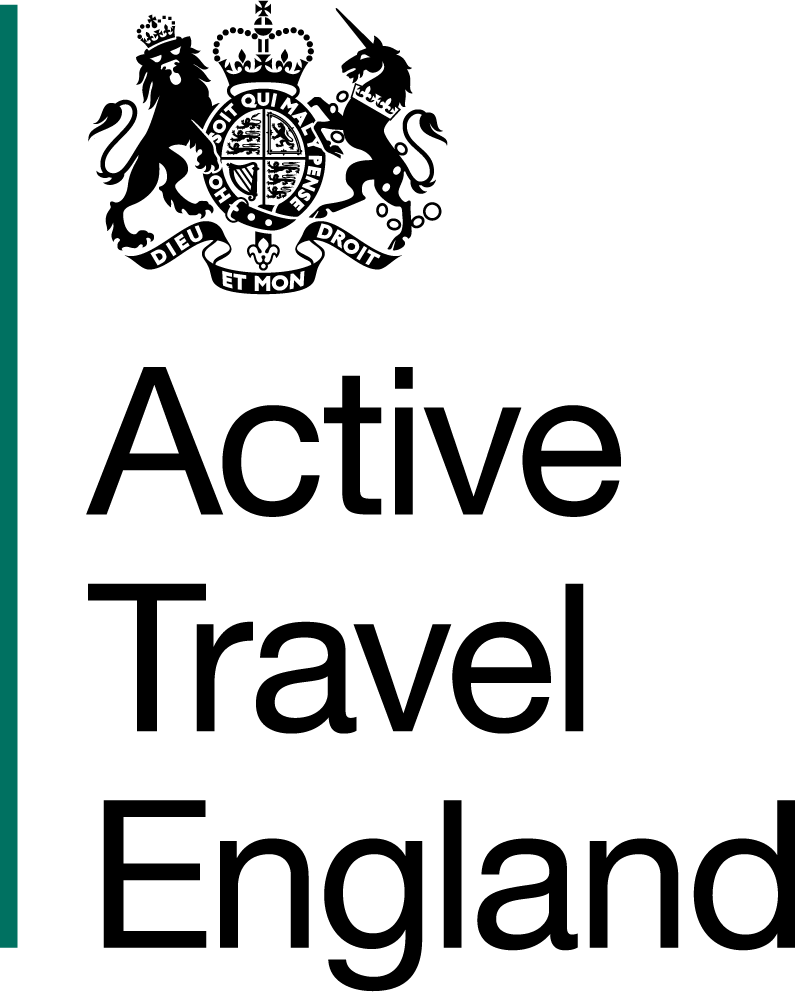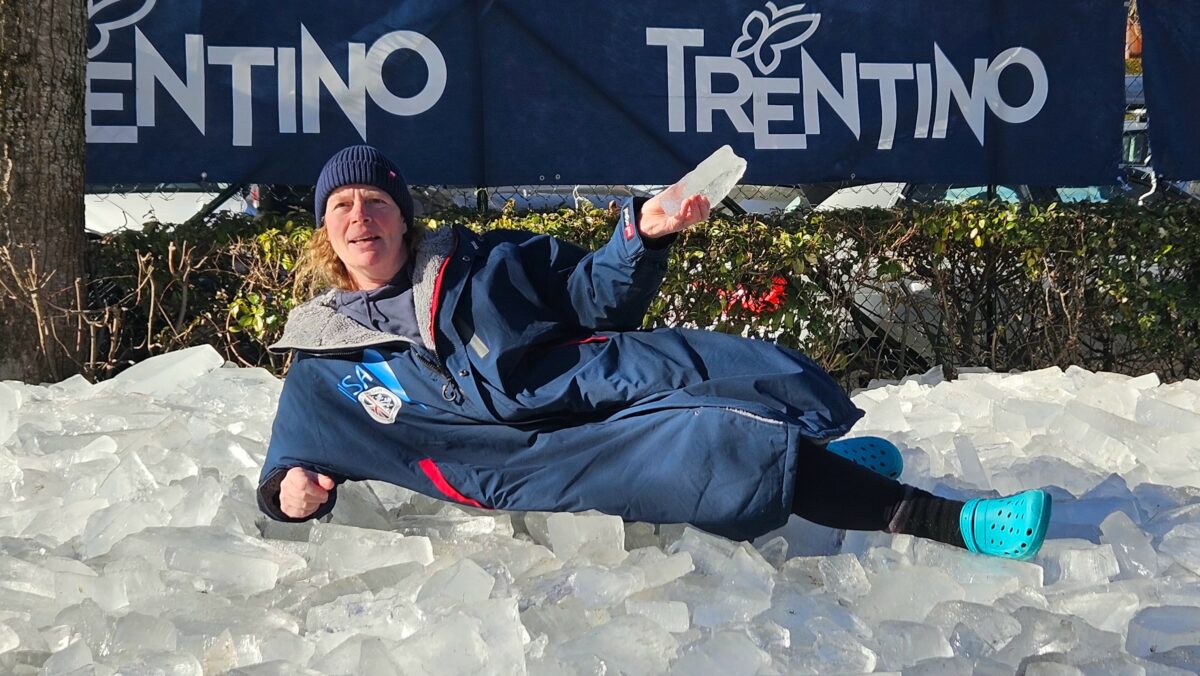In celebration of World Autism Acceptance Month, Cate, a Bikeability instructor, tutor and assessor, shares her personal journey and insights into how autism can impact the learning experience, particularly in cycling. Drawing from her own recent autism diagnosis and her passion for both cycling and swimming, Cate offers a unique perspective on how to support autistic individuals in their journey to learning how to ride a bike. In this guest blog, Cate highlights how small adjustments and a deeper understanding of autism can help create an inclusive and supportive environment for all learners, enabling everyone to experience the freedom and joy that cycling can bring.
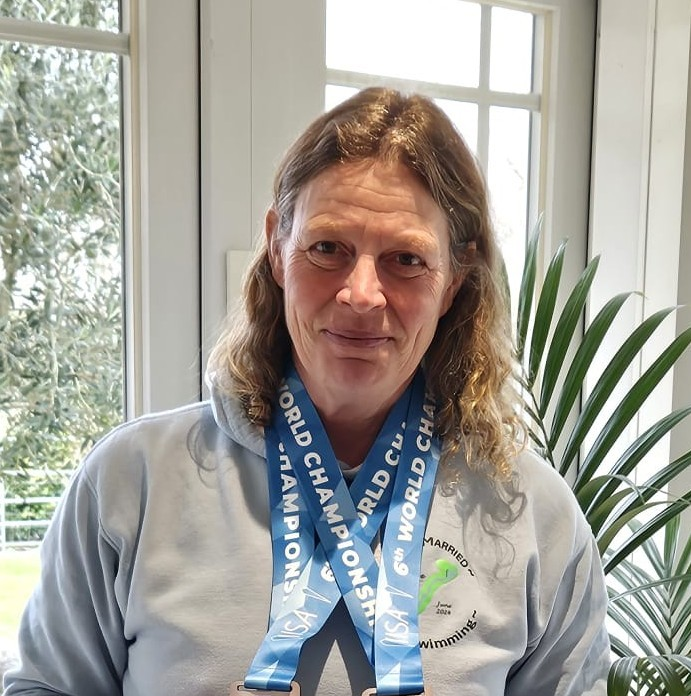

I love a challenge and I find it hard to say no when someone suggests the next big adventure.
I am passionate about sports, including swimming and cycling, and previously triathlon, and it was really these interests that brought me into the world of Bikeability. It seemed like a good idea to combine my teaching and learning experience with one of my hobbies. I love cycling, and have enjoyed many long distance bike-packing trips. My latest one was with my husband Rob at the end of last year, where we cycled 2000 miles through New Zealand on our gravel bikes. One of my favourite parts of being a cycling instructor is sharing that passion, seeing young people enjoying being out on their bikes and starting out on the journey that could potentially give them so much freedom and incredible experiences. I am also a really keen swimmer, and love open water. I’ve done some amazing swims with friends including the length of Loch Lomond, around the island of Jersey and across the English Channel, as well as some solo end to end swims, including Windemere and Lake Annecy. I’m also part of the Great Britain Ice Swimming team, taking to the water in some ridiculously low temperatures in just my swimsuit , hat and a pair of goggles. Basically, I love a challenge and I find it hard to say no when someone suggests the next big adventure.
So just to put into context, I have recently been diagnosed with Level 1 autism and I am going through a referral for ADHD. This is a really big thing for me as I have always somewhat struggled in social contexts and have often felt slightly on the periphery of social groups and I’m really rubbish at small talk. I also become quite hyper-focused about things and anything that I am interested in or enjoy can quickly become a bit of an obsession. It probably explains why I don’t just do things, but I tend to do them to extreme. The ADHD side also means that once I change my focus, I have then moved on to the next task and very rarely go back to what I was doing before. Another thing that I find is that I have a very fixed view of what is right and wrong, and I struggle when I feel like I have been misjudged or accused of something that I haven’t done. Its difficult for me to get over this, even though I’m quite aware of it, and it can be quite challenging in some contexts where I don’t always see things from other perspectives in a way that other people might.
It is sad, but not uncommon, for my characteristics to go under the radar and I wasn’t diagnosed as autistic until well into my 50s. I manage quite well in the world. I am bright and articulate, and very able to function in a complex world. Through my life, rather than being recognised as autistic, I have been thought of as ‘unusual’ or ‘quirky’, maybe ‘stand-offish’ and as a child often ‘naughty’. Now, for me, my diagnosis has meant that I can understand a little better about how a slightly different way of thinking or perceiving the world may have a huge effect on how I may react to situations and interact with others around them.
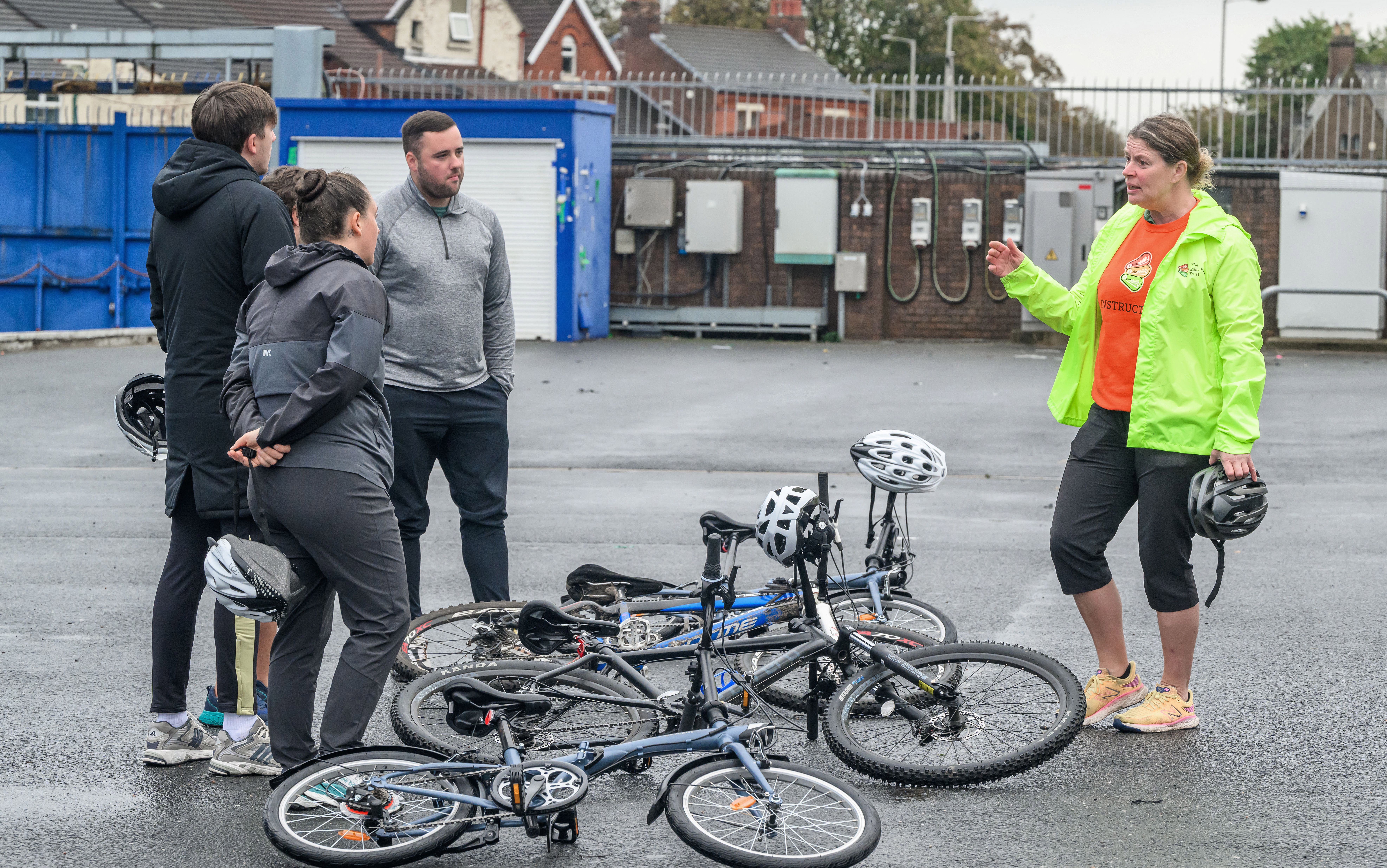

Cycling is a wonderful activity and can be enjoyed by all sorts of people, and there really is no reason why autistic children and adults would not be able to have as much fun learning to ride or developing skills like everyone else.
So how does this relate to BIkeability? Cycling is a wonderful activity and can be enjoyed by all sorts of people, and there really is no reason why autistic children and adults would not be able to have as much fun learning to ride or developing skills like everyone else. It is a sad fact, however, that lots of autistic children do not learn to ride and this may be to do with a lack of understanding of how to support their journey. Autism is an interesting diagnosis as it is a true spectrum, and one of the best quotes I’ve heard by Dr Stephen Shore states: “If you’ve met one person with autism, you’ve met one person with autism.” Autism can range from mild autism where traits may be not so immediately obvious, to individual with very complex needs, who may require very high levels of support. And the issues that may affect autistic children vary from person to person, but those that could affect their engagement with cycling may include difficulty with coordination and fine and gross motor control, resistance to new experiences and hyper-sensitivity to noise and other external stimuli. As a result, some autistic children may find the prospect of learning to ride a bike quite challenging.
So what can we do to help? Often the best decisions about how to go about approaching an activity can be made by the learner themselves, and it may be appropriate to ask how they would like to go about learning. Perhaps ask how you can help or if there anything they need you to do. Even just giving a bit of time to familiarise with a new environment, equipment or even people, and getting used to how things work. One of the key considerations is that there should never be any pressure for anyone who is learning to ride. Often this can be the best way to put learners off, and everyone should be encouraged to learn at their own pace regardless of who they are. It may also be that autistic children will feel overwhelmed if there are too many things going on, and particularly if they feel that there are too many other people around whilst they are learning, so perhaps a quieter learning environment without other riders whizzing about would be helpful.
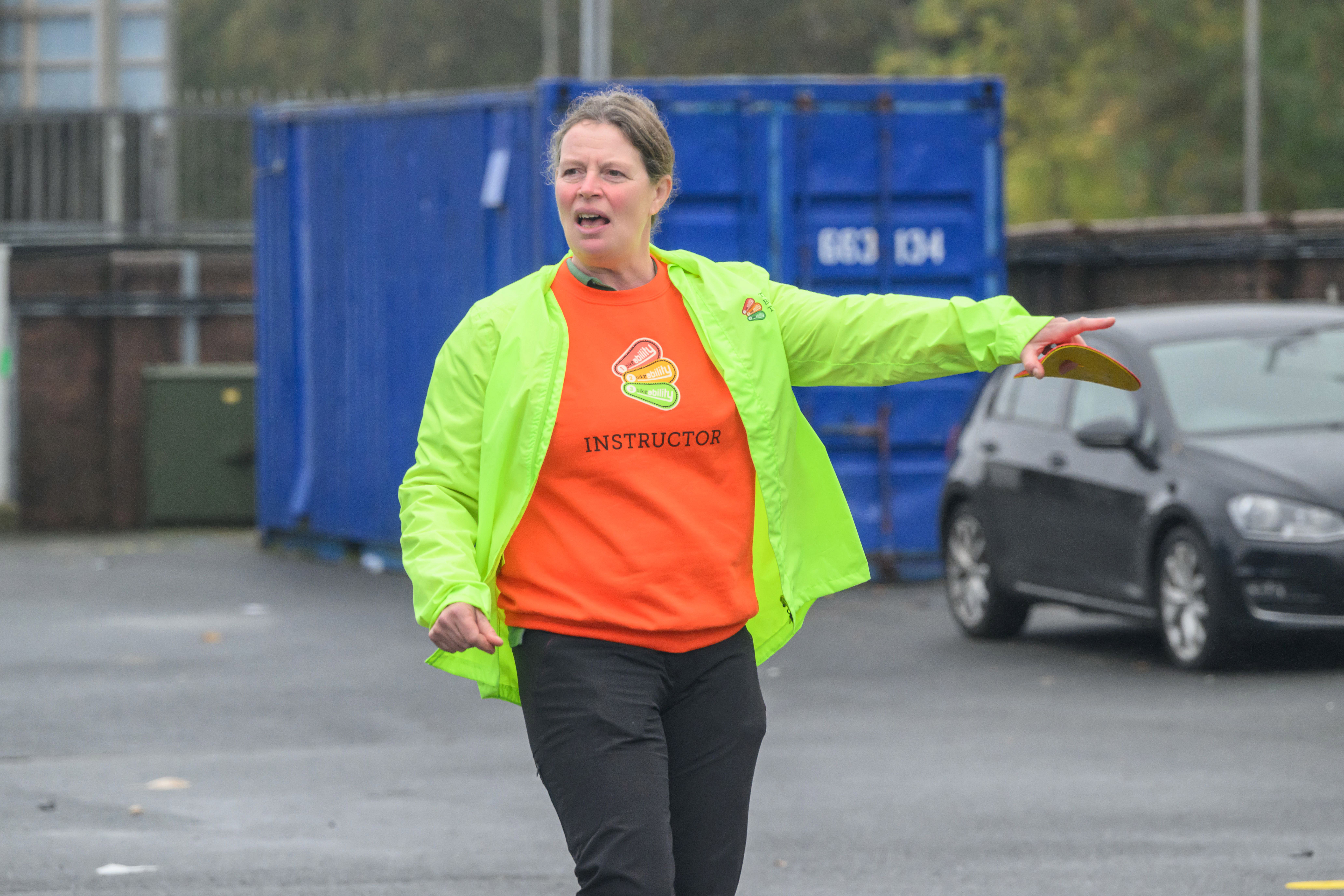

It is really about identifying what we can do to help, how we can support the learner in terms of providing a calm environment, free from lots of external stimuli, taking away the pressure and perhaps most importantly involving the rider in their own journey.
Probably the best way to learn to ride, for any learner, is to use a balance bike. Any bike can be turned into a balance bike by taking the pedals off, so even older children or adults can use this as a way to get riding. On a balance bike, children can make their own progress at their own pace, without the need for a huge amount of input from others. Giving new riders the opportunity to explore for themselves in an unpressurised way and develop their confidence with balance before transferring to a pedal bike is definitely the best way to start out.
So whilst autism can be a real barrier to learning to ride a bike, it does not mean that autistic people are not able to ride. It is really about identifying what we can do to help, how we can support the learner in terms of providing a calm environment, free from lots of external stimuli, taking away the pressure and perhaps most importantly involving the rider in their own journey.
Autism may present challenges in learning to ride a bike, but it does not mean that autistic individuals cannot enjoy the many benefits cycling offers. By understanding the unique needs of each learner, providing a supportive and calm environment and allowing learners to progress at their own pace, we can help remove barriers and create a more inclusive space for everyone. Cate’s personal story and thoughtful approach remind us that learning is not one-size-fits-all, and by being patient, empathetic and adaptable, we can empower all riders to embrace cycling as a fulfilling and enriching activity.
